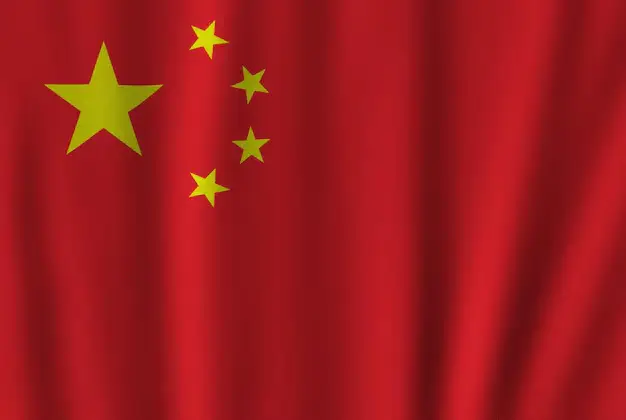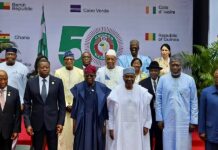By Sarafina Christopher, News Agency of Nigeria (NAN)
At first glance, they look like ordinary housekeeping notes; cut down on meetings, avoid luxury banquets, keep speeches short.
When the Communist Party of China (CPC) introduced its Eight Rules principle in 2012, few imagined they would spark a governance culture shift beyond China’s borders.
Thirteen years later, those simple principles have become the cornerstone of President Xi Jinping’s leadership.
They are saving billions in public funds, curbing corruption, and, most importantly, restoring trust between leaders and citizens.
Today, the Eight Rules are prompting a global conversation on integrity and public accountability.
The policy is becoming increasingly relevant to countries like Nigeria that are seeking credible, people-centred governance.
The Eight Rules originally meant to reform official conduct have evolved into a moral framework guiding China’s governance and diplomacy.
During my week-long participation in the African Think-Tank and Media Workshop in China, held from May 26 to June 2, 2025, I witnessed these firsthand.
The programme began in Beijing with a presentation on “Achievements, Opportunities and Challenges of China-Africa Cooperation in the New Era.”
It sent a clear message that China’s engagement with Africa is anchored on respect, discipline, and mutual accountability values mirrored in the spirit of the Eight Rules.
Mr Li Mingxiang, Deputy Minister of the International Department of the CPC Central Committee (IDCPC), underscored this reality.
He emphasised that China-Africa cooperation should not only be about infrastructure and trade but also about trust and responsibility in governance.
Li stressed the essence of the Eight Rules that authority must be exercised with humility, and that leadership must remain close to the people it serves.
When the Eight Rules were introduced after the CPC’s 18th National Congress in December 2012, they were modestly described as “a few dos and don’ts.”
Yet their targets were deeply entrenched: formalism, bureaucracy, hedonism, and extravagance.
The rules require officials to shorten meetings, simplify documents, cut down on banquets, avoid luxury travel, and reduce unnecessary publicity.
They demand diligence, frugality, and genuine connection with the people, a radical shift from a culture that had grown distant and indulgent.
Chinese Ambassador to Nigeria, Yu Dunhai, said the Eight Rules were designed to improve investigation and fact-finding.
They were also aimed at streamlining official engagements, and ensure that every action of government reflects service and sincerity.
According to him, the Rules respond directly to the public’s demand for clean governance, and gain support across all levels of Chinese society.
He explained that the effectiveness of the Eight Rules lies in sound design, rigorous enforcement, and strong public trust.
“With Party and state leaders setting the example, compliance cascaded downward, strengthening their authority and impact,” he said.
Over a decade later, the results are visible.
In 2024 alone, more than 225,000 violations were investigated across China, with proof of strict enforcement and the scale of behavioural change still underway.
The CPC prioritises the needs of the people, placing their well-being at the core of its mission and striving to fulfill their aspirations for a better life.
The envoy said over the past decade, the CPC has vigorously addressed misconduct and corruption that harm public interests.
This was done by tackling petty corruption in daily life and removing barriers to the implementation of policies that benefit the people.
Through these actions, China has worked wholeheartedly to resolve the everyday difficulties and concerns of the people, demonstrating a consistent commitment to people-centered governance.
The Eight Rules have transcended China’s domestic context to become a reference point for governance globally.
Many international media and think tank reports note that the Party’s self-discipline shown in the Eight Rules is not exclusive to any specific political system.
It, instead, reflects a universal public demand for modern, efficient and clean governance.
“The Rules offer unique experience in modernising public governance and provide valuable lessons to other countries on how to regulate power, protect people’s interests and improve governance.
“This, in my view, is the global significance of the Rules,” Yu said.
The Eight Rules also promote clean, practical and efficient governance, as its principles align closely with global trends in fighting corruption and improving public administration.
The UN Convention Against Corruption, for instance, emphasises transparency, accountability and the proper management of public resources.
The Eight Rules carry global significance because they mirror a universal demand for clean, modern, and efficient governance.
They address the global challenge of corruption because corruption, as a global issue, weakens public trust in governments and hinders economic development.
According to Transparency International’s Corruption Perceptions Index, cracking down on corruption remains an urgent priority for many countries.
The policy also demonstrates how institutional mechanisms can regulate power, protect public interest, and rebuild trust between citizens and government.
They are not just about frugality but about moral responsibility, ensuring that leaders act in ways that inspire public confidence.
The principle has also strengthened China’s global credibility and shaped its diplomacy under different initiatives.
These include the Global Development Initiative, Global Security Initiative, and Global Civilisation Initiative, each infused with the same ethos of fairness, integrity, and shared progress.
In its engagements with Africa and other global partners, China has integrated the spirit of the Eight Rules into its major-country diplomacy.
This is exemplified by Chinese characteristics, which injects strong momentum into deepening political mutual trust and expanding practical cooperation.
China’s clean political environment has not only elevated ethical and cultural standards across society, but also strengthened international recognition and trust in China’s policies.
In a 2023 survey covering 23 countries, 94.2 per cent of respondents acknowledged the CPC’s central role in advancing democracy and modernisation in China.
About 94 per cent expressed approval of China’s national governance capabilities.
Through its wholehearted service to the people, strict self-discipline, and integrity-building efforts, the CPC has set a positive example for political parties worldwide.
This has earned China political prestige and credibility as a responsible major country, which further translates into trust, influence and appeal in its international interactions.
Ordinary Chinese citizens say the Eight Rules effects are evident in everyday life.
“We turn off unnecessary lights, limit air-conditioning, and avoid food waste. It’s about cultivating responsibility in everything we do,” Li Mu, a civil servant in Beijing’s legal system, said.
“Working meals are simple now: no cigarettes, no alcohol, no luxury dishes. It keeps us focused on the job,” Lin Ming from Shandong Province said.
Chinese scholars describe such modest changes, multiplied nationwide, as a moral economy of governance, where leadership is defined not by privilege but by service.
Media experts also acknowledge the importance of the Eight Rules in their reportage, noting that integrity is the foundation of influence.
“In a time when sensationalism dominates headlines, we have learned to focus on restraint, substance, and credibility,” Shao Xinying, Editor, China Daily, said.
Mr Berry Lwando, Director-General, Zambia National Broadcasting Corporation, noted that media credibility, like political credibility, is earned through accuracy, restraint, and service.
According to Askar Medetov, Editor-in-Chief of Kyrgyzstan’s Great Mountains Publishing House, public trust begins when leaders lead modestly.
Also, speakers at the 4th Dialogue on Exchanges and Mutual Learning Among Civilisations, emphasised that the principles constituted a reform model rooted in values rather than power.
Mr Hu Changsheng, Secretary of the CPC Gansu Provincial Committee, for instance, described the Eight Rules as part of a broader civilisational ethic of humility and service.
Mr Ji Bingxuan, Vice Chairman of the Standing Committee of the 13th National People’s Congress, described the Eight Rules as a bridge between morality and governance.
“It is a way to ensure that authority serves the public, and not the reverse,” he said.
Hervé Juvin, erstwhile European Parliament member noted that even in an age of artificial intelligence, governance still depends on human trust, something the Eight Rules continually remind everyone.
“The Eight Rules policy is the hallmark of President Xi’s leadership, a decisive action by a doer who delivers,” Mushahid Sayed, Chairman of the Pakistan-China Institute, said.
Prof. Han Yuhai of Peking University described the Eight Rules as “the moral economy of governance, where leadership is defined not by privilege but by service.
Dithapelo Keorapetse, Speaker of the National Assembly of Botswana said that, in Africa, the problem is often not a lack of vision, but a lack of credibility.
“The Eight Rules show that governments can rebuild trust through consistent, everyday discipline,” he said.
Dr Joe Abah, a former Director-General of Nigeria’s Bureau of Public Service Reforms, said the best way to fight corruption is to make it difficult to happen.
“Reducing wasteful spending on convoys and ceremonies can save funds for vital services and signal integrity in leadership,” he said.
Observers argue that China’s Eight Rules policy demonstrates that reforms need not be grand to be effective.
Global leaders must therefore just learn to enforce and live out such reforms, and make them visible to citizens.(NAN)(www.nannews.ng)







